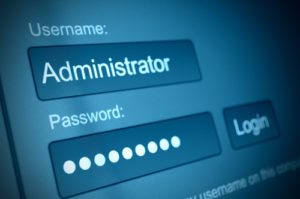{4:25 minutes to read} Hacking and Internet intrusion is on the rise. Issues are occurring in websites, social media, and even in some email systems. It is incredibly important to take serious and consistent steps to ensure that your online properties (Facebook, Google+, LinkedIn profiles, newsletter programs, website and/or blog) are protected to the greatest extent possible.
“Password” Should Never Be Your Password
Nor should 12345! Hackers use sophisticated software to define, obtain, or circumvent passwords. Your passwords need to be very strong!
Most of us grew up in a time when we had passwords that were easy to remember and reusable—to do so is no longer safe.
Our Recommendations:
- Use a variety of highly secure passwords that are at least 12 characters in length.
- Include a mix of uppercase and lowercase letters, numbers, and/or symbols.
- Passwords should be impossible to guess and should not be used repeatedly across multiple online services.
phoneBlogger.net has taken considerable measures to guard against these issues for the sites that we manage for our clients.
Control Access to Your Website (Your social media profiles and pages are “Websites” as well.)
Often, a variety of people may work on your website providing content, writing code, etc. It’s common for full administrative rights to be given to somebody who is solely editing. As a result, you can end up with numerous administrative level accounts on your website or blog—this is problematic and should be avoided.
Different levels of access exist and should be utilized accordingly. For example, WordPress has varying levels of access which control what a user can do within the dashboard, etc. If you have a guest blogger, you should set things up so that they only have access to what they need (editing an article vs backend admin functions, as an example) — and no more.
phoneBlogger.net’s hosting clients each have one or two highly secure administrative logins, depending on the agreed upon work. All other logins are eliminated.
Secure Your Domain Host/Registrar Accounts
Regardless of the domain registrar, whether you’re hosting your account or have purchased one, that account needs to be secure. Often, there is a level of dashboard or backend—specifically for File Transfer Protocol (FTP), etc.— with a corresponding username or password; make sure you know what it is, and change it if it does not meet the secure recommendations above.
It is important to follow the same protocols mentioned earlier. In addition, make sure that the username is something different from your name or your company name.
You Should Know What is at Stake
Hackers are operating worldwide and are becoming bolder with every moment. Once they gain entry into the backend of a website (to FTP for example), they can upload malicious software that may or may not be engaged right away. The hackers are often interested in sending spam out from your web server—almost every web server is also an email server. If hackers piggyback on your web server or domain name to send spam, your entire domain name can get blacklisted! Often malicious software will lie dormant without your knowledge that it’s there.
Recently, I learned of an individual who used very simple passwords and shared them across email. Upon being hacked, hackers gained access to all of their programs and social media platforms. Needless to say, chaos ensued—these concerns should be taken very seriously.
Your domain name, website, and reputation, etc. are at stake!
Mark Bullock
Telephone: (631) 754-0800
Email:Mark@phoneBlogger.net
Website:phoneBlogger.net




Leave A Comment